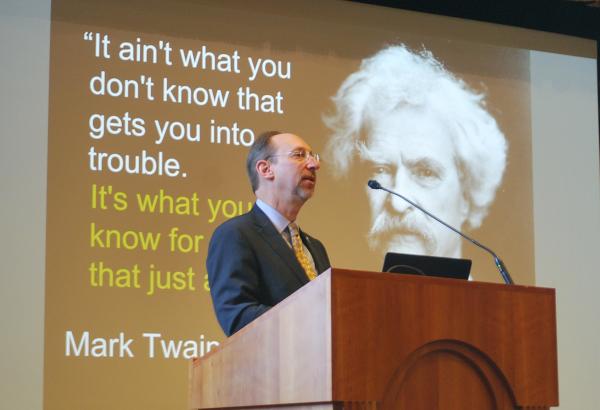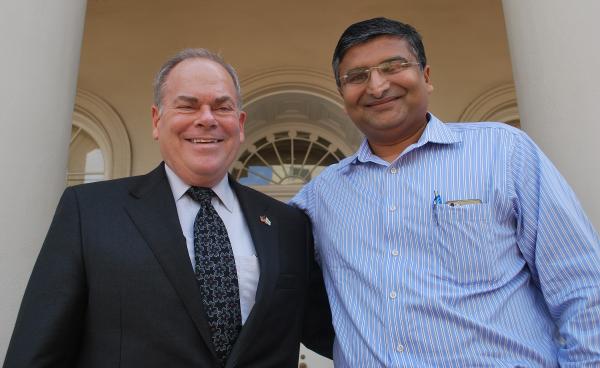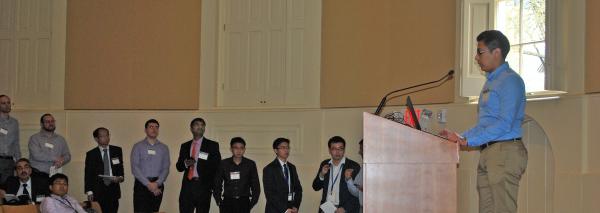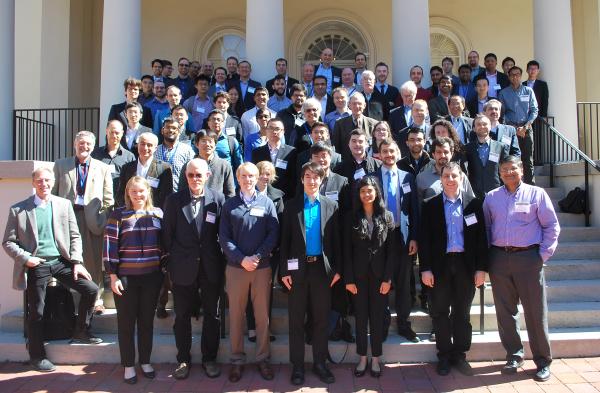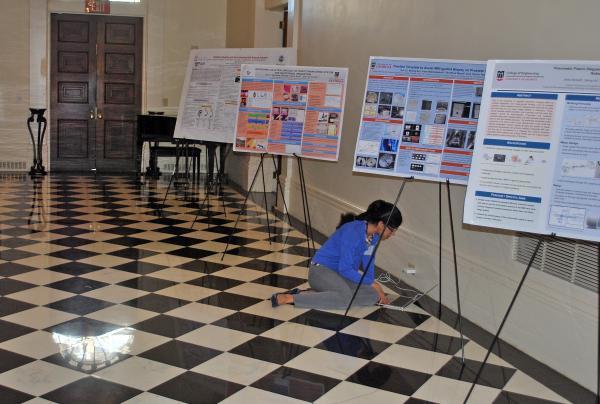Medical robotics expanded its footprint at the Georgia Institute of Technology with two significant developments in March.
The month began with the first ever International Symposium on Medical Robotics (ISMR), a three-day gathering of some of the world’s thought leaders in the field, who shared their latest research at the Historic Academy of Medicine at Georgia Tech. And not long after that, Jaydev Desai, director of the Georgia Center of Medical Robotics (GCMR) at Georgia Tech, received a $3 million NIH Research Project Grant (R01).
“We are one of the very few places in the U.S., if not the world, doing top notch work in robotics,” said Desai, professor in the Wallace H. Coulter Department of Biomedical Engineering at Georgia Tech and Emory University, and a researcher with the Petit Institute for Bioengineering and Bioscience at Georgia Tech.
Desai, who also is associate director of the Institute for Robotics and Intelligent Machines at Georgia Tech, organized and chaired the symposium, which brought more than 100 experts from across the U.S., and six different countries, to Atlanta.
“The response was terrific,” Desai said. “Attendees enjoyed the breadth and depth of the symposium. They liked the fact that the focus was medical robotics, not just surgical robotics. There was broad appeal.”
Speakers from universities and institutions in the U.S., Canada, France, Italy, the Netherlands, and the United Kingdom presented a wide range of research topics, including, among many other things: “Computer-Assisted Technologies for Laser Microsurgery” (Leonardo De Mattos, Istituto Italiano di Tecnologia); “Medical Microbrobotics: Wireless Control of Miniaturized Agents” (Sarthak Misra, University of Twente, Netherlands); “Soft Wearable Robots for the Community and the Home” (Conor Walsh, Harvard); and “Mobile Manipulators for Intelligent Physical Assistance,” (Charlie Kemp, Georgia Tech).
Additionally, there were keynote speeches from experts, such as, Jonathan Lewin (president and CEO of Emory Healthcare) and Steven Wolf (Emory School of Medicine).
“So basically, we covered a lot of ground in a lot of different areas,” said Desai, who is already considering how he might grow the symposium next year to also include what he’s calling, “a Spring School on Medical Robotics, based on the summer schools for medical robotics that have been held in the U.S. in the past.”
The last one was held in 2014, at Carnegie Mellon University in Pittsburgh. Desai wants to revive the program and include it with the symposium, creating a week-long event. It’s all part of an initiative he’s been pursuing to grow medical robotics at Georgia Tech since arriving here from the University of Maryland in August 2016.
News Contact Info:
Jerry Grillo
Communications Officer II
Parker H. Petit Institute for
Bioengineering and Bioscience
Media Contact
Jerry Grillo
Keywords
Latest BME News
Courses in the Wallace H. Coulter Department of Biomedical Engineering are being reformatted to incorporate AI and machine learning so students are prepared for a data-driven biotech sector.
Influenced by her mother's journey in engineering, Sriya Surapaneni hopes to inspire other young women in the field.
Coulter BME Professor Earns Tenure, Eyes Future of Innovation in Health and Medicine
The grant will fund the development of cutting-edge technology that could detect colorectal cancer through a simple breath test
The surgical support device landed Coulter BME its 4th consecutive win for the College of Engineering competition.
New research from Georgia Tech helps doctors predict how therapies will interact with a child's immune system, potentially improving outcomes and reducing risks.
Georgia Tech researchers reveal the dynamic role of inhibitory neurons in spatial memory and learning

